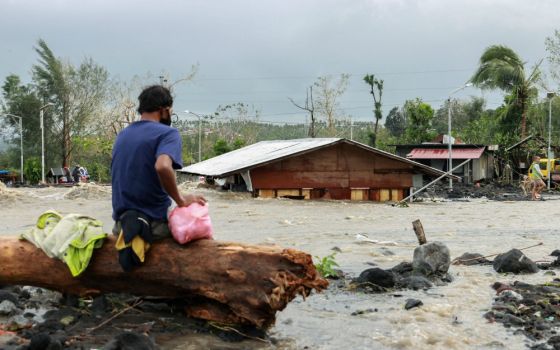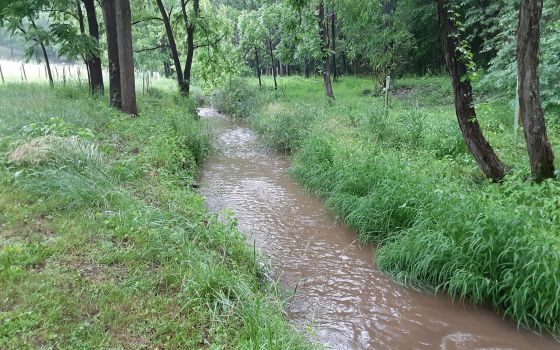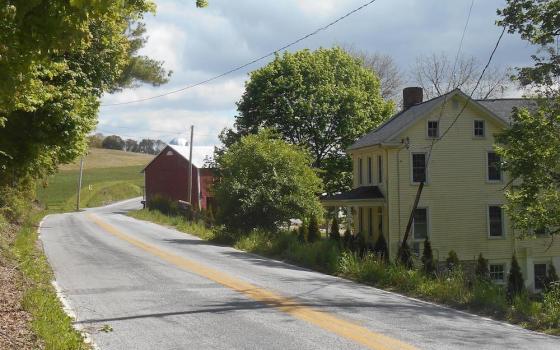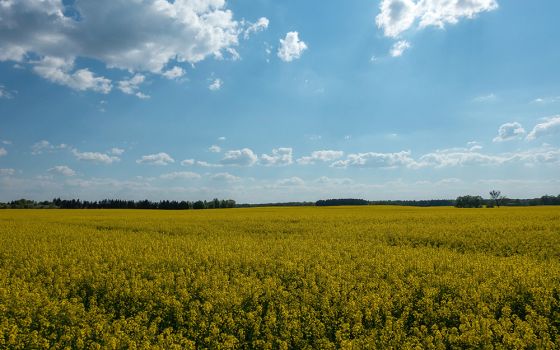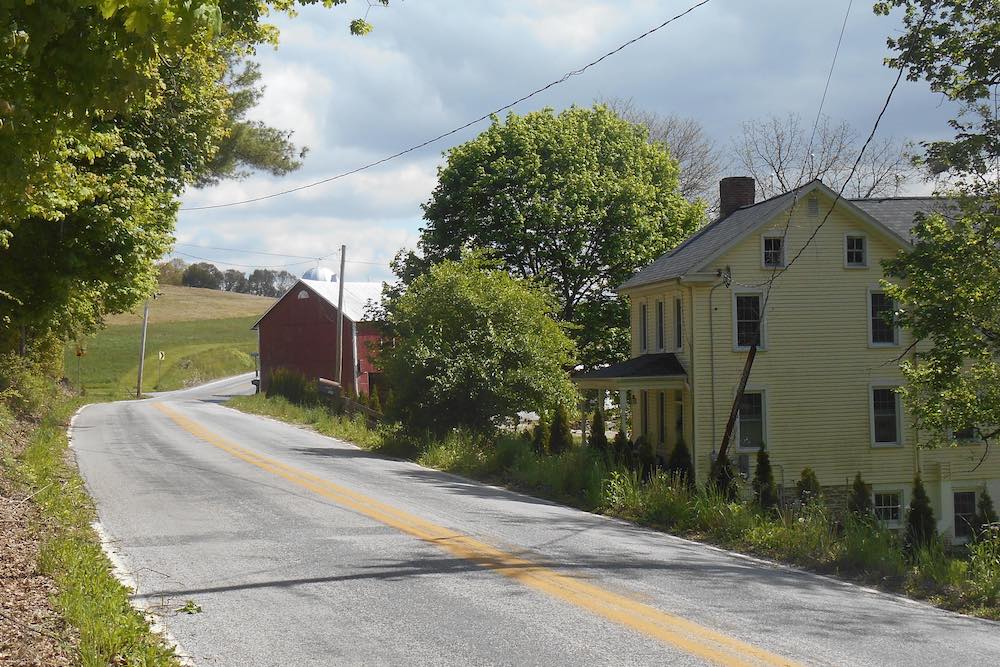
The author reports that the COVID-19 lockdown has resulted in less traffic on the usually well traveled road by his home. (Michael Wright)
As a social worker who focuses on environmental justice, I've found the COVID-19 crisis to be extraordinary, in more ways than the obvious. Months of lockdown have afforded time to consider what it really means from a socio-environmental perspective. As tragic and challenging as the pandemic has been, it has yielded many environmental benefits. Social distancing has significantly reduced travel and purchasing, lowering demand for energy and raw materials, which has reduced emissions and other pollution. Less driving also means less traffic noise, which my family and I have appreciated: We live along a rural road that is usually well traveled, but has been relatively quiet lately. As a result we, and everyone else, have had a taste of what our world could be if we were to drive less, consume less and pollute less.
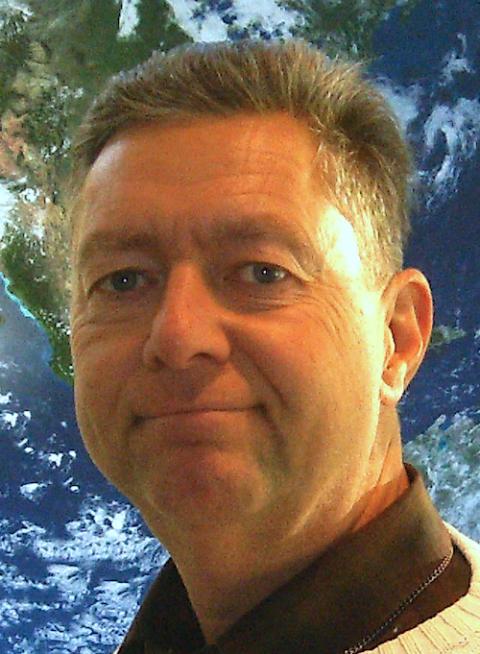
Michael Wright (Provided photo)
All this is unfolding as we mark the fifth anniversary of Pope Francis' encyclical "Laudato Si', on Care for Our Common Home." This historic yet under appreciated document covers many issues brought to the fore by the coronavirus epidemic: environmental degradation, "compulsive consumerism," social injustice, and the "rapidification" of society. Many, including my family and I, have come to realize that what we really need is not necessarily what we usually want. This is especially true when it comes to wasting resources and energy that, as Francis puts it, "leads to the planet being squeezed dry beyond every limit. ... [Our] 'use and throw away' logic generates so much waste, because of the disordered desire to consume more than what is really necessary" (106, 123).
This time of shared crisis affords us a serendipitous opportunity to grow beyond ourselves by considering how our actions can affect others and creation itself: "Concern for others, and the rejection of every form of self-centeredness … attune us to the moral imperative of assessing the impact of our every action and personal decision on the world around us." (208) My family and I have always tried to live as low-carbon as possible, in small ways like composting and hanging clothes to dry, and in big ways like solar power and geothermal heating and cooling. Due to this time of full-family lockdown, however, we've found ways to live even more sustainably: driving and buying less, cooking more than usual, and scheduling no-meat and bean-entree dinners each week. We've also reduced the duration of showers and frequency of grocery shopping. To avoid buying products that contribute to tropical deforestation, like those with palm oil, we've found many that are "rainforest safe" (see rainforest-alliance.org) We're also planting more: Although we have only a couple of small gardens, even this can decrease our dependence on "long-distance" produce. By reducing our own emissions, we're incrementally helping the climate, "a common good, belonging to all and meant for all" (23).
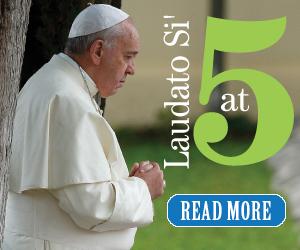
(CNS photo/logo by Toni-Ann Ortiz for EarthBeat)
More publicly, I have decided to advocate even more for environmental justice and "care for creation" than I have in the past. With climate change once again relegated as a "background" issue, I hope to do more to help build social consensus to address it, despite the current focus on the pandemic. Indeed, it has become clear that we as a society can work together to solve a global crisis, however challenging. So coming together as one human family to reduce pollution and solve climate change is in fact possible — and imperative if we are to survive as a species. "Human beings, while capable of the worst, are also capable of rising above themselves, choosing again what is good, and making a new start … to respond to his grace at work deep in our hearts" (205).
If any good can come out of this shared human experience that is the coronavirus epidemic, it may be that we find we don't need to consume, spend or move about as much as we thought we did, and that a new age of caring for creation is at hand. It seems we have been given a great grace: an opportunity to choose to better appreciate and care for creation, of which we are a part.
As Francis so eloquently states, "Love for society and commitment to the common good are outstanding expressions of a charity … social love moves us to devise larger strategies to halt environmental degradation and to encourage a 'culture of care' which permeates all of society" (231). Ultimately, this current crisis may help us to finally realize that caring for life is intimately dependent on caring for "our common home."
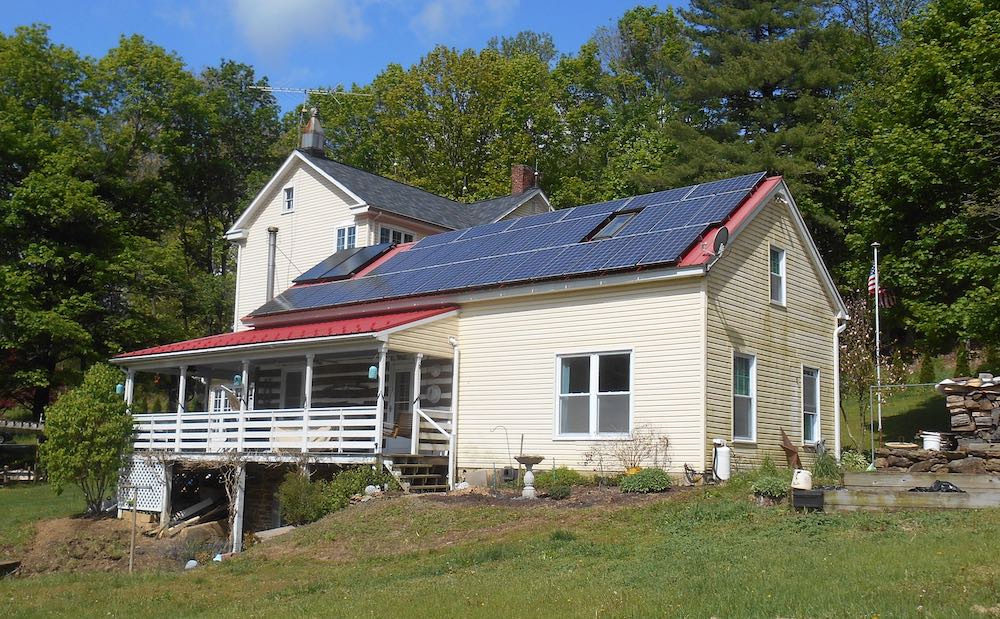
Solar panels on the author's home in southeastern Pennsylvania (Michael Wright)
[Michael Wright is a retired NASA engineer, a licensed social worker and the author of a number of articles and publications about the environment, including Ten Things Pope Francis Wants you to Know about the Environment. He is a member of the Climate Psychology Alliance of North America.]
Advertisement




